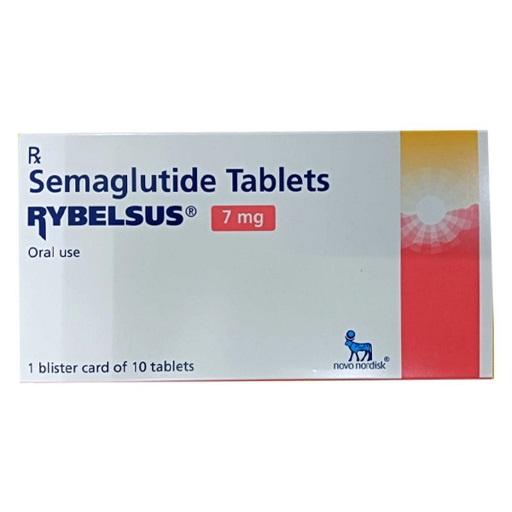Imagine your hotel not only maintaining occupancy but also experiencing substantial revenue growth. In this comprehensive guide, we’ll walk you through 14 actionable strategies to boost your hotel’s performance, using a blend of data, technology, and psychology to drive revenue.
Critical Takeaways: Revenue Management in the Hotel Industry
Before diving into the core strategies, here are some foundational points to remember for successful revenue management in the hotel industry:
- Data-Driven Decisions: Use data insights to make informed pricing, marketing, and operational decisions, leading to better profit margins.
- Dynamic Pricing: Adopt an active pricing approach, adjusting rates in real-time based on demand patterns, seasonality, and local events.
- Optimized Distribution Channels: Utilize a diverse mix of online platforms to broaden your reach and attract more guests.
- Personalized Guest Experiences: Personalization fosters loyalty, encourages positive reviews, and enhances guest satisfaction.
- Cross-Selling Opportunities: Maximize revenue by offering additional services such as spa packages, dining options, and exclusive experiences.
- Strategic Alliances: Collaborate with local businesses to create packages that attract a broader audience and enhance guest experiences.
Let’s begin our journey into effective revenue management strategies that will elevate your hotel’s financial outlook.
The Foundation of Revenue Management in the Hotel Industry
Revenue management in the hotel industry is the strategic approach of analyzing consumer behavior to predict demand, setting room rates, and managing inventory to maximize profitability. This approach goes beyond simply filling rooms—it ensures every booking is optimized to deliver the highest possible return. By understanding the importance of demand forecasting, market segmentation, and pricing strategies, hotel managers can strategically align rates, inventory, and promotional efforts with anticipated demand trends.
The Evolution of Revenue Management in the Hotel Industry
Revenue management practices have evolved significantly. Initially focused solely on optimizing room rates, the concept has expanded to cover every area impacting hotel profitability. The integration of technology, particularly property management systems (PMS) and revenue management systems (RMS), has streamlined data analysis, enabling hoteliers to implement real-time, dynamic pricing and drive better profitability.
The Role of Technology in Modern Revenue Management
Technology has revolutionized revenue management, providing tools to analyze data on demand patterns, guest preferences, and competitor pricing. Systems like PMS, RMS, and customer relationship management (CRM) software streamline data collection, allowing hotels to make faster, more accurate decisions. Artificial intelligence (AI) further enhances this process, enabling predictive pricing and automated responses to market shifts.
The Psychology Behind Pricing Strategies in Hotels
Effective pricing strategies incorporate psychological insights to influence booking decisions. By understanding how guests perceive value and price, hotels can strategically position rates and offerings. For example, anchoring higher-end rooms alongside standard options can make the latter appear more affordable. Additionally, limited-time offers and exclusive packages encourage faster booking decisions, driving higher occupancy and revenue.
The Importance of Comprehensive Training in Revenue Management
Training is crucial for executing successful revenue management strategies. Staff at all levels should understand revenue management principles and how their actions contribute to the hotel’s financial performance. Well-trained employees can support cross-selling efforts, implement dynamic pricing strategies, and contribute to positive guest experiences.
Dynamic Pricing: The Engine of Profitability
Dynamic pricing adjusts room rates based on current demand, seasonality, and market conditions. By pricing rooms based on real-time data, hotels can maximize revenue even during low-demand periods. This approach requires monitoring local events, competitor rates, and booking trends to adjust rates accordingly.
Implementing Dynamic Pricing: A Step-by-Step Guide
- Analyze Demand Data: Use historical data to identify demand patterns.
- Monitor Competitor Rates: Regularly check competitor pricing to stay competitive.
- Adjust Rates in Real-Time: Employ an RMS for seamless rate adjustments.
- Optimize for Booking Channels: Adjust rates for each distribution channel to maximize visibility.
- Review and Refine: Continuously monitor results and refine strategies based on performance.
Overcoming Challenges in Dynamic Pricing
Common challenges include guest pushback on fluctuating rates and the complexity of real-time rate adjustments. These can be managed by maintaining rate integrity, educating guests on seasonal pricing, and ensuring technology is in place to automate pricing updates effectively.
Case Studies: Dynamic Pricing Success Stories
Many hotels have seen remarkable revenue growth by implementing dynamic pricing. For example, Marriott International reported an increase in overall room revenue after adopting a dynamic pricing model, demonstrating the tangible benefits of this strategy.
The Future of Dynamic Pricing: Technological Advancements
Dynamic pricing will become increasingly sophisticated with AI-driven data analysis. Future advancements will enable hotels to integrate additional factors like weather forecasts and economic indicators, allowing for more nuanced rate adjustments and increased revenue potential.
Optimized Distribution Channels: Reaching New Heights
An optimized distribution strategy ensures that your hotel is visible to the right audiences on the right platforms. By utilizing online travel agencies (OTAs), metasearch engines, and direct bookings, hotels can reach a broader market and drive more bookings.
Choosing the Right Online Travel Agencies (OTAs)
Select OTAs that align with your target market and offer competitive commission structures. Each platform has unique user demographics, so understanding your target audience helps in choosing the most suitable channels.
Direct Bookings vs. Third-Party Platforms
Balancing direct bookings with third-party platforms is essential for optimizing revenue. Direct bookings typically offer higher profit margins, while OTAs provide greater visibility. Strategies like loyalty programs, incentives, and social media promotions can drive direct bookings.
Maximizing Visibility Through Metasearch Engines
Metasearch engines like Google Hotel Ads and TripAdvisor increase your hotel’s visibility and enable price comparison, driving more direct bookings. Optimizing for metasearch engines can boost your hotel’s reach and drive substantial revenue growth.
Leveraging Social Media for Direct Bookings
Social media platforms are powerful for brand building and driving direct bookings. Engaging with potential guests through targeted ads, content, and promotions can boost visibility and encourage direct bookings.
Personalization: Crafting Unforgettable Experiences
Personalized guest experiences foster loyalty and encourage positive reviews. By tailoring experiences to individual preferences, hotels can drive repeat bookings and enhance revenue.
Read Also: Lobby Hotel Design Ideas to Boost Guest Experience (and Revenue!)
Leveraging Guest Data for Personalization
Collecting data on guest preferences allows hotels to offer personalized services, such as room preferences, amenities, and special offers for frequent visitors. This approach enhances guest satisfaction and drives loyalty.
Implementing Technology for Personalized Service
Technology facilitates personalization through tools like smart room features, chatbots, and mobile apps, enabling guests to customize their experiences.
Tailoring Packages and Offers to Individual Preferences
Personalized packages, such as anniversary or family bundles, appeal to diverse guest segments and encourage longer stays or higher spending.
Measuring the Impact of Personalization on Revenue
Studies show that personalized experiences can increase guest spending by up to 18%. Monitoring guest satisfaction scores and revenue metrics can measure the impact of personalization efforts.
Cross-Selling Opportunities: Increasing Average Spend
Cross-selling involves offering additional services, such as dining, spa treatments, or recreational activities, to increase average guest spend. This strategy is highly effective for boosting overall revenue.
Creating Irresistible Packages and Bundles
Crafting packages that combine room rates with additional services, like meals or spa treatments, provides added value and encourages guests to spend more during their stay.
Training Staff for Effective Cross-Selling
Staff play a critical role in cross-selling. Training them to recommend services based on guest preferences enhances the likelihood of upsells.
Utilizing Technology to Drive Cross-Selling
Technology like booking systems with integrated add-ons can streamline cross-selling efforts by suggesting relevant services at check-in or via mobile apps.
Measuring the Impact: Cross-Selling Success Stories
Hotels like the Ritz-Carlton have successfully increased average guest spending through well-executed cross-selling strategies, particularly in spa and dining services.
Strategic Alliances: Collaborating for Success
Collaborating with local businesses and attractions can expand your offerings and attract new guests. Strategic alliances can lead to packages that showcase local culture, making your hotel a preferred choice for unique experiences.
Identifying and Cultivating Local Partnerships
Look for local partners that share your target audience, and offer complementary services. Joint packages and promotions with these partners can attract more guests.
Crafting Exclusive Packages with Local Flavor
Exclusive packages, such as a “Taste of Local Cuisine” or “Explore the City” package, appeal to travelers seeking unique experiences and help drive bookings.
Marketing Collaborative Packages Effectively
Promote these packages through social media, OTAs, and metasearch engines to reach a wider audience and enhance booking rates.
Measuring the Impact: Success Stories of Strategic Alliances
Strategic alliances have proven successful for many hotels, particularly in tourist-heavy locations where unique packages make the hotel stand out.
Conclusion
Revenue management in the hotel industry requires a multifaceted approach, incorporating data-driven decision-making, dynamic pricing, optimized distribution channels, personalized guest experiences, cross-selling, and strategic alliances. By embracing these strategies, hotels can increase occupancy, drive guest satisfaction, and elevate profitability.
Whether you’re a seasoned hotelier or new to revenue management, adopting these strategies can help you navigate the challenges and opportunities of today’s competitive landscape.
Also Read: Unveiling the Secrets: A Comprehensive Guide to Resort Weight Loss Program Pricing



